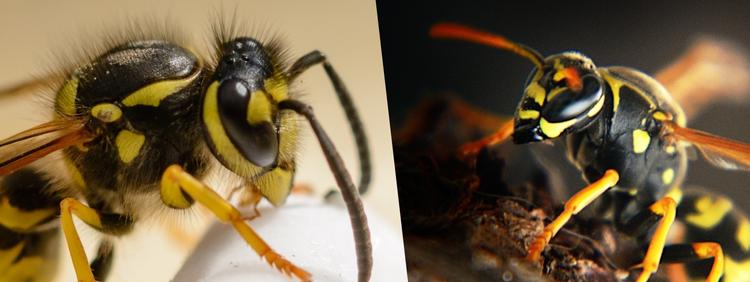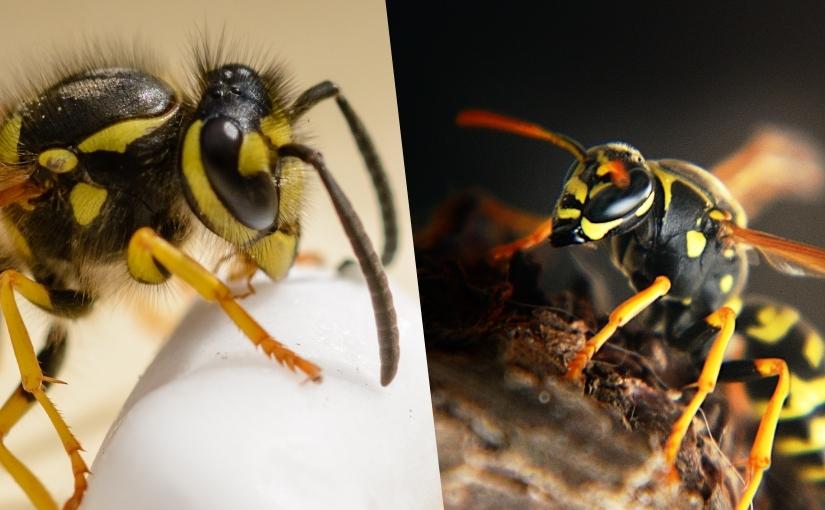
When winged stinging insects decide to share your Waterloo property with you, it can be difficult to identify one species from another, as wasps, hornets and yellowjackets all share characteristics and it can be difficult to get close without risking a sting. At Truly Nolen, we can provide you with pest control services in Waterloo, as well as a variety of information about how wasps and hornets differ so you can make the best choice possible regarding our treatment choices.
Spotting Physical Traits
While wasps and hornets can look similar, they have several traits that may help you identify them. You might notice that wasps have several identifiers, including:
- A glossy exoskeleton
- A slim waist
- A banded or solid-coloured body
In contrast, hornets usually have thicker waists and almost always have yellow-and-black bodies, although a few species, such as the Bald-Faced hornet, may have black bodies with white markings. Hornets are also larger than wasps overall, making them simpler to identify than their cousins.
Nesting Habits Differ
Depending on the species, wasps and hornets may approach building their homes differently. Each spring, queens emerge from hibernation and choose a suitable nesting site, which is visually above ground and in a corner location where it cannot be seen easily. Both wasps and hornets build nests above ground, although a few hornet species may also build complex nests underground, in dead trees, or in heavy shrubbery.
Social species work together to build large ariel nests made of paper and wood, which the insects chew into a pulp to fashion the design. Hornet nests are usually circular in shape, while wasps tend to create football-shaped homes. Each nest may contain more than 700 members.
Dietary Habits Often Differ
Female adult wasps and hornets hunt insects for the rest of the colony members to feed on; however, their diet consists mainly of nectar, which the nest’s larvae produce for them to eat. They may also eat flower nectar and pollen. Both species have the ability to deliver a powerful sting, which paralyzes insect prey for easy transport.
Wasps and hornets differ greatly in one main aspect of their diets, which is how they find sugar. when wasp larvae develop into adults and leave the hive, adults must then fend for themselves and find their own sources of sugar and carbohydrates. This is why wasps become more aggressive during the fall and may invade your picnic or outdoor barbeque, especially if you have soda and other sweets out. Adult hornets do not scavenge in this manner and continue to hunt insects until cold weather kills them off.
Aggression Habits May Vary
Coming across any wasp or hornet nest on your property can be cause for alarm, especially if the colony feels threatened. Both wasp and hornets may swarm and sting a perceived enemy repeatedly, although hornets are generally more aggressive than most species of wasps that reside in Ontario. The venom they deliver with their stings is also more potent than those of wasps, which means an accidental encounter can result in serious pain for people and pets.
Calling us for wasp pest control services in Waterloo can help you avoid coming into contact with these insects, as our technicians can remove nests and colonies around your property and prevent them from returning each spring with effective treatments. They can also provide you with tips for avoiding wasp and hornet nests and how to prevent them from building on or near your property.
Because of the potential harm they can cause, calling for assistance with wasp and hornet removal is usually a wise choice. Contact us today and schedule a property inspection that can provide you with peace of mind that your home and family are protected from these insects.
